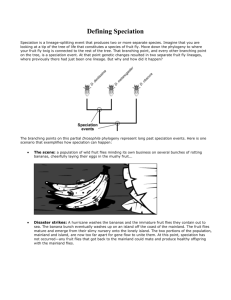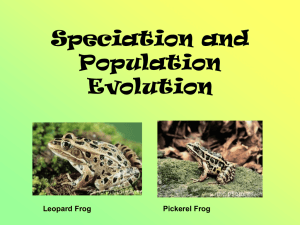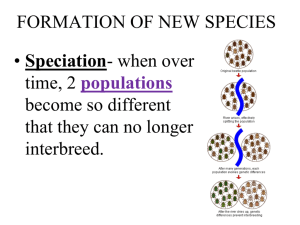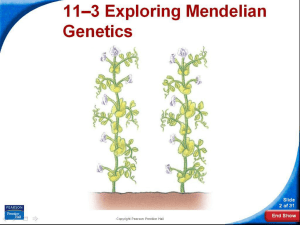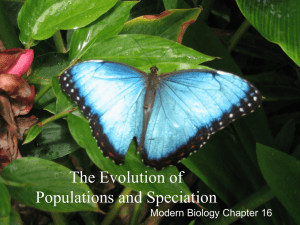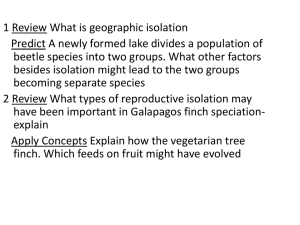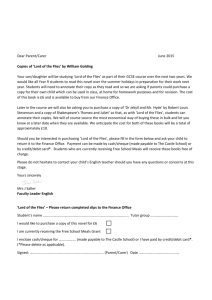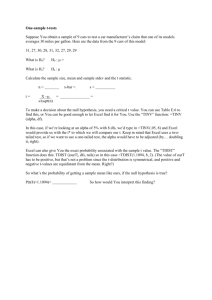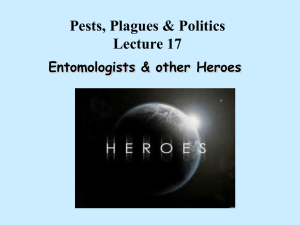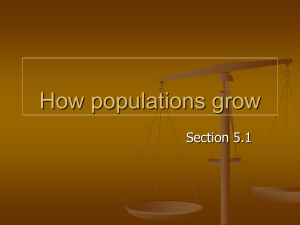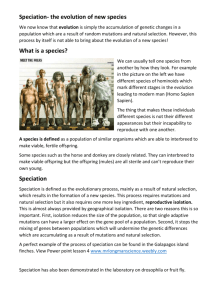Biology HW – Speciation Story
advertisement
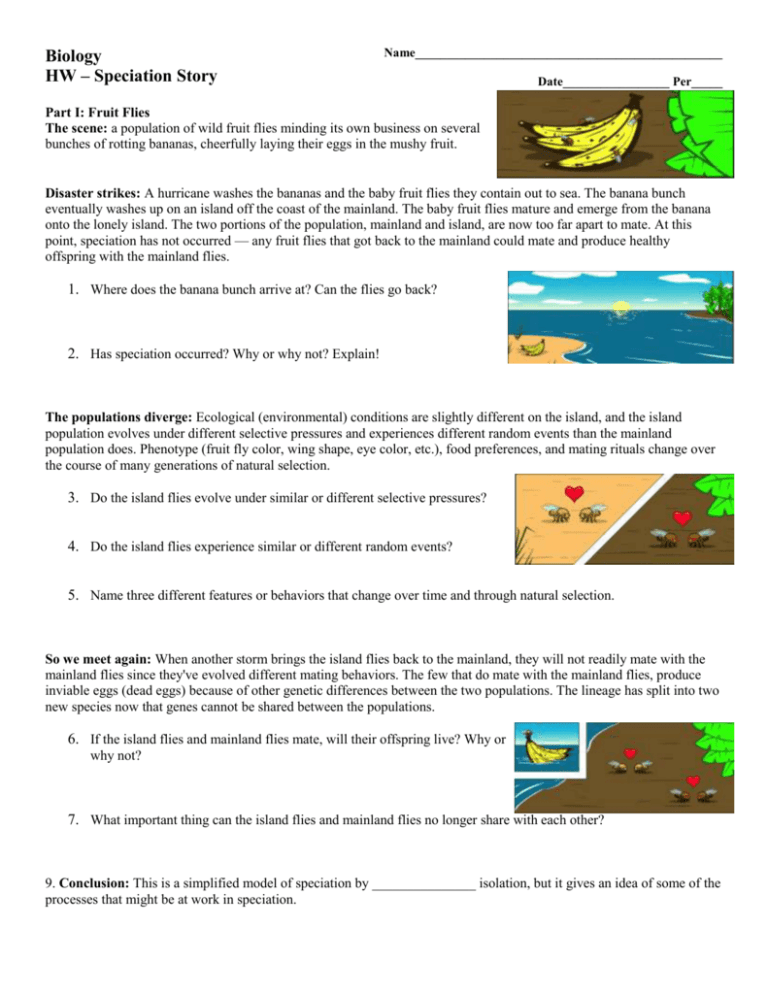
Biology HW – Speciation Story Name_________________________________________________ Date_________________ Per_____ Part I: Fruit Flies The scene: a population of wild fruit flies minding its own business on several bunches of rotting bananas, cheerfully laying their eggs in the mushy fruit. Disaster strikes: A hurricane washes the bananas and the baby fruit flies they contain out to sea. The banana bunch eventually washes up on an island off the coast of the mainland. The baby fruit flies mature and emerge from the banana onto the lonely island. The two portions of the population, mainland and island, are now too far apart to mate. At this point, speciation has not occurred — any fruit flies that got back to the mainland could mate and produce healthy offspring with the mainland flies. 1. Where does the banana bunch arrive at? Can the flies go back? 2. Has speciation occurred? Why or why not? Explain! The populations diverge: Ecological (environmental) conditions are slightly different on the island, and the island population evolves under different selective pressures and experiences different random events than the mainland population does. Phenotype (fruit fly color, wing shape, eye color, etc.), food preferences, and mating rituals change over the course of many generations of natural selection. 3. Do the island flies evolve under similar or different selective pressures? 4. Do the island flies experience similar or different random events? 5. Name three different features or behaviors that change over time and through natural selection. So we meet again: When another storm brings the island flies back to the mainland, they will not readily mate with the mainland flies since they've evolved different mating behaviors. The few that do mate with the mainland flies, produce inviable eggs (dead eggs) because of other genetic differences between the two populations. The lineage has split into two new species now that genes cannot be shared between the populations. 6. If the island flies and mainland flies mate, will their offspring live? Why or why not? 7. What important thing can the island flies and mainland flies no longer share with each other? 9. Conclusion: This is a simplified model of speciation by _______________ isolation, but it gives an idea of some of the processes that might be at work in speciation. Part II: Geographic Isolation In the fruit fly example, some fruit fly larvae were washed up on an island, and speciation started because populations were prevented from interbreeding by geographic isolation. Scientists think that geographic isolation is a common way for the process of speciation to begin: rivers change course, mountains rise, continents drift, organisms migrate, and what was once a continuous population is divided into two or more smaller populations. When a geographic barrier arises, populations can no longer share genes. Sharing genes between populations is known as gene flow. 10. In geographic isolation, are populations continuous or divided? Explain. 11. What is gene flow? Part III: Reproductive Isolation Even though the environment may cause a barrier to prevent individuals from mating with each other, geographic isolation alone is not enough to cause full-fledged species to develop. New species form only when individuals are reproductively isolated from each other. . 12. Does geographic isolation alone lead to the formation (creation) of a new species? 13. How do new species form? New species truly form when reproductive isolation occurs, when genes can no longer be shared. This can happen in two different ways: A. Prezygotic Barriers: Lack of "fit" between sexual organs: Example: These damselfly penises illustrate just how complex insect genitalia may be. When sex organs no longer fit, then individuals can no longer mate. 14. What happens when sex organs no longer fit? B. Postzygotic Barriers: Offspring inviability (not able to survive) or sterility (not able to have babies): If two individuals mate and can’t produce offspring that can survive and reproduce, then they will not be able to mix and share their genes and are no longer the same species. 15. What does inviability mean? 16. What does sterility mean? 17. What happens if two individuals can’t produce offspring that can survive? 18. Are they the same species or different species?
